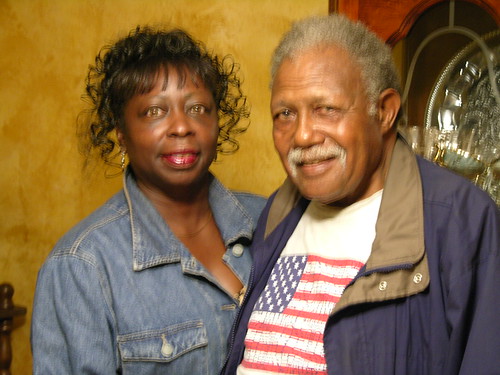|
Subscribe to Dollars & Sense magazine. Recent articles related to the financial crisis. Railroad TracksCarland Baker, Sr. is a retired military veteran. He served for twenty-three and a half years as an aviator for the US Army and Navy. Mr. Baker was in five combat actions—in the Dominican Republic, Panama, Cuba, and Vietnam. He was wounded in Vietnam in 1966 but returned throughout the 60s, up through 1971 during the deactivation of our armed forces. Mr. Baker retired from active duty in 1983, worked for a few years for Hanes Hosiery and has since been disabled and unable to work. Mr. Baker moved to Long Beach, MS in 1996 and lived there in the same townhouse for the last ten years until Hurricane Katrina obliterated it. Currently he lives in a FEMA trailer on the Seabee Naval Base in Gulfport. Carland Baker: Once they kinda got organized and they was pickin' people up left and right, puttin' em in jail. Then they came out with this concertina wire. It's military defense wire, called razor wire. They put this stuff for about twenty miles all down the coast, just about. Technorati Tags: gulfport, katrina, long beach, mississippi, race, racism
Comments:
"I was Black. And they weren't goin' a let me in there under no circumstance." Well I'm white and the Black soldiers in the Army National Guard wouldn't let me get to my house... Does that mean there is Reverse Racism or could it mean that the policy was the same accross the board.
Mike,
Post a Comment
I think you raise an interesting question. You may be right that there was one policy "across the board." Unfortunately, your anecdotal experience is no more a proof of the absence of racism than Mr. Baker's is a proof of it's presence. Here's what I think is most significant what Mr. Baker and Ms. Tart had to say. First that, as Gayle Tart says it was, "Like their property was more important than our property, that's the idea you got." Why weren't police and military personnel guarding the mostly Black property north of the tracks? And what were they really doing there, if there were whites trespessing south of the tracks? Second, just because Blacks and whites may have all been stopped from crossing the tracks north to south, does not mean that they had the same experience when they were stopped. Though you may both have been stopped, the armed forces may have communicated to Mr. Baker that they were stopping him because he is Black. If you are from there, you must know about the discriminatory practices of Gulfport law enforcement—from the debtors' prison that at the county jail to the murder of Jessie Williams by his jailers after he was picked up on misdemeanor charges. Mr. Baker is a soft-spoken man, who is not prone to opinionated outbursts. I take his analysis seriously. << Home |



